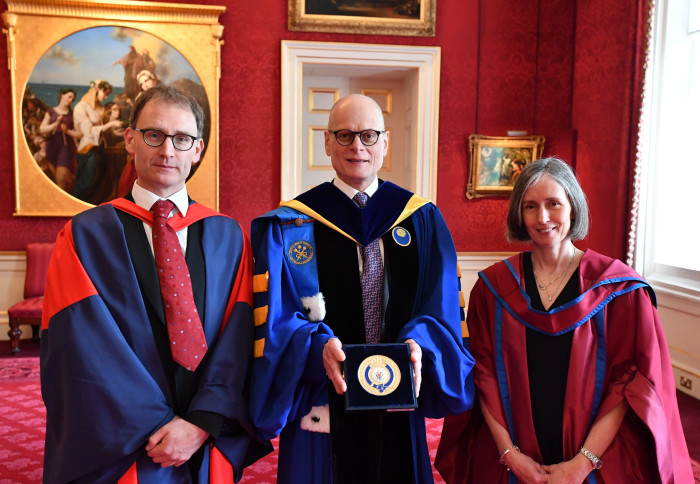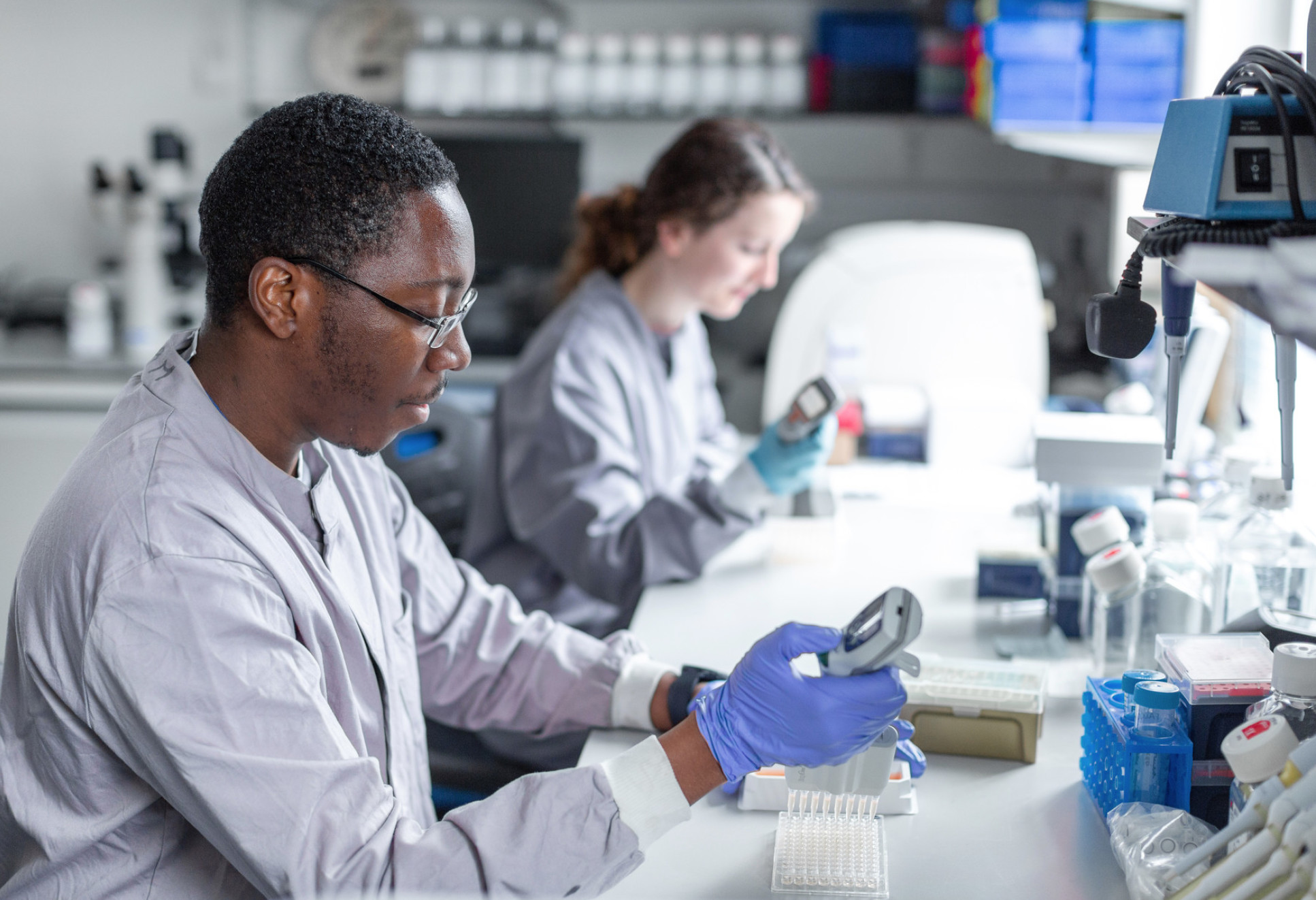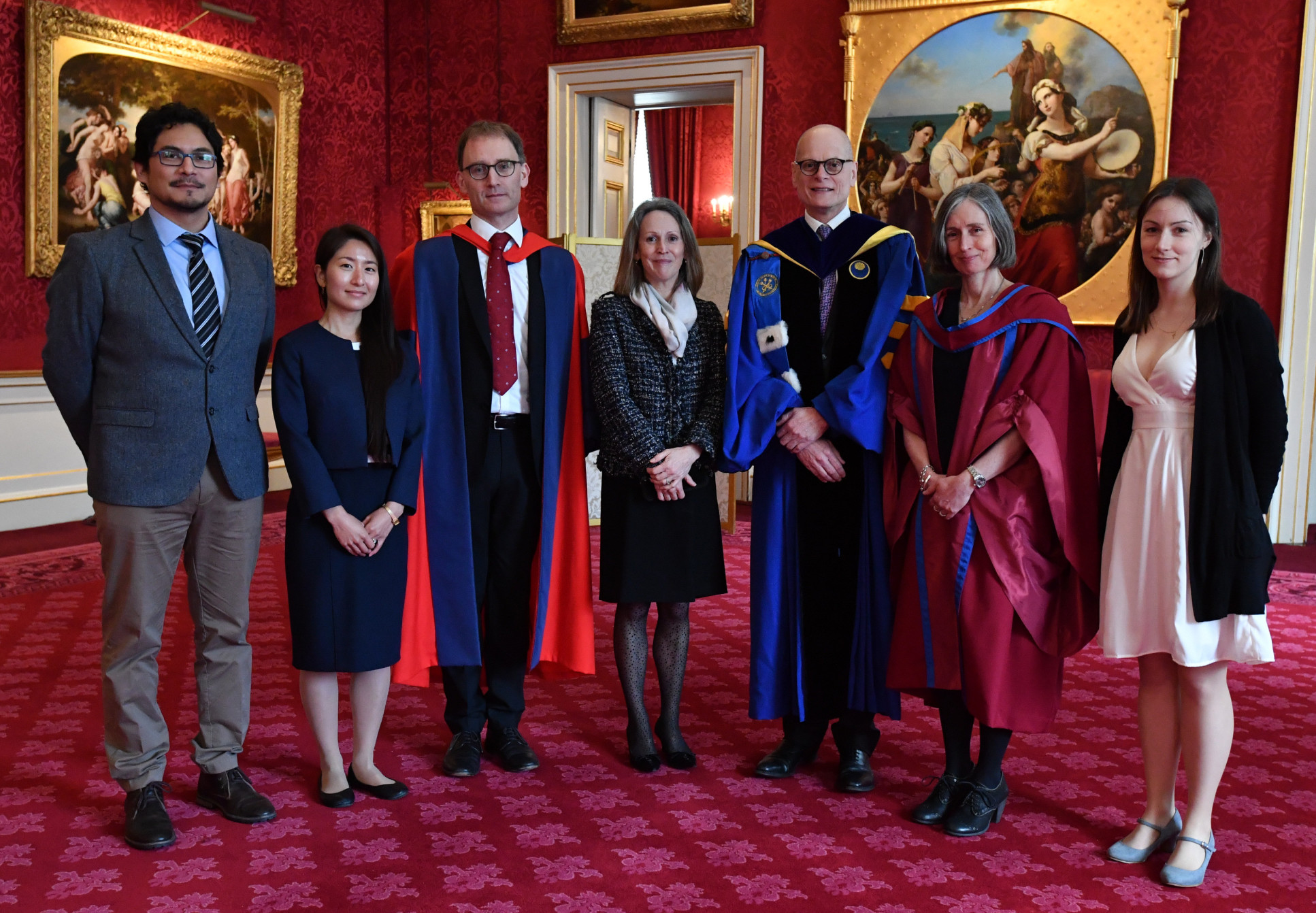Imperial receives Queen’s Anniversary Prize for ‘world-class’ COVID-19 response

Imperial College London has been recognised for its response to the COVID-19 pandemic at a Queen’s Anniversary Prize presentation this week.
Provost Professor Ian Walmsley, Vice-Provost (Education and Student Experience) Professor Emma McCoy, and Professor Neil Ferguson, Vice-Dean (Academic Development) for the Faculty of Medicine, attended the official presentation at St James’s Palace on Thursday, where the College was celebrated for its “world-class expertise in data modelling and real-time analysis” during the pandemic.
Professor Wendy Barclay, Head of Imperial’s Department of Infectious Disease, and three researchers – Dr Natsuko Imai, from the College’s MRC Centre for Global Infectious Disease Analysis (MRC GIDA), Dr Pablo Perez Guzman, from MRC GIDA, and Michaela Flegrova, from the Department of Physics – also attended the reception at the palace on Thursday morning.
The Queen’s Anniversary Prize, which is run by the Royal Anniversary Trust, was set up to celebrate excellence and innovation in UK further and higher education and to recognise work that benefits the wider world and public.
"From modelling disease spread to major trials on treatments and vaccine technology, our community has been at the forefront of the global response to COVID-19." Professor Ian Walmsley Provost of Imperial College London
Imperial’s award was given for the rapid and collaborative response from staff across different disciplines to COVID-19, which helped inform governments, policymakers and healthcare services, and shaped pandemic strategies around the world.
Professor Walmsley said: “On behalf of the College, I am proud to accept this award, which rightly celebrates the resilience, dedication and incredible achievements of our entire community.
“From modelling disease spread to major trials on treatments and vaccine technology, our community has been at the forefront of the global response to COVID-19.
“Faced with unprecedented challenges, Imperial staff also moved rapidly to develop new hybrid learning technologies to ensure that our students continued to receive a world-class education throughout a period of national lockdowns and restrictions.”

The College’s response to COVID-19 began in January 2020, shortly after the outbreak in Wuhan, China, was reported, with a group of more than 80 academics and students collaborating as the COVID-19 Response Team to study the transmissibility and severity of the virus.
Key research achievements have included: 15 Imperial-led clinical trials on COVID treatments, work on a unique self-amplifying RNA (saRNA) vaccine approach that could revolutionise how vaccines are produced, and a landmark human challenge study to show the course of disease in those with mild infections.
Imperial also leads one of the world’s largest COVID-19 community surveillance studies (REACT), which tracks infections across England through regular testing of the population and provides key data to the UK Government.
Commenting on the award, Dr Imai said: “On behalf of the whole Imperial College COVID-19 Response Team, I am honoured and delighted to be attending the Queen’s Anniversary Prize ceremony.
“It is a privilege to be working and collaborating with such incredible scientists. Their teamwork and dedication to producing the best possible epidemiological evidence to help countries manage this pandemic inspires me every day.”

Net zero Platinum Jubilee Challenge
Twelve guests from the College who were involved in the award-winning work were also invited to attend a celebratory dinner at The Guildhall in London on Wednesday evening.
Guests included: Professor Christl Donnelly, Professor Deborah Ashby, Professor Neil Ferguson, Professor Omar Matar, Professor Paul Elliott, Professor Peter Openshaw, Professor Richard Thompson, Professor Robin Shattock and Professor Wendy Barclay.
At the dinner, it was announced that this year’s prize winners would be invited to participate in The Queen’s Platinum Jubilee Challenge to find ways to help the further and higher education sector achieve net zero carbon emissions.
Imperial has submitted Professor Paul Lickiss, the College’s Academic Leader in Sustainability, and Professor Neil Alford, Associate Provost (Academic Planning), to be representatives for the challenge.
Main image credit: Theodore Wood Photography.
Article text (excluding photos or graphics) © Imperial College London.
Photos and graphics subject to third party copyright used with permission or © Imperial College London.
Reporter
Conrad Duncan
Communications Division